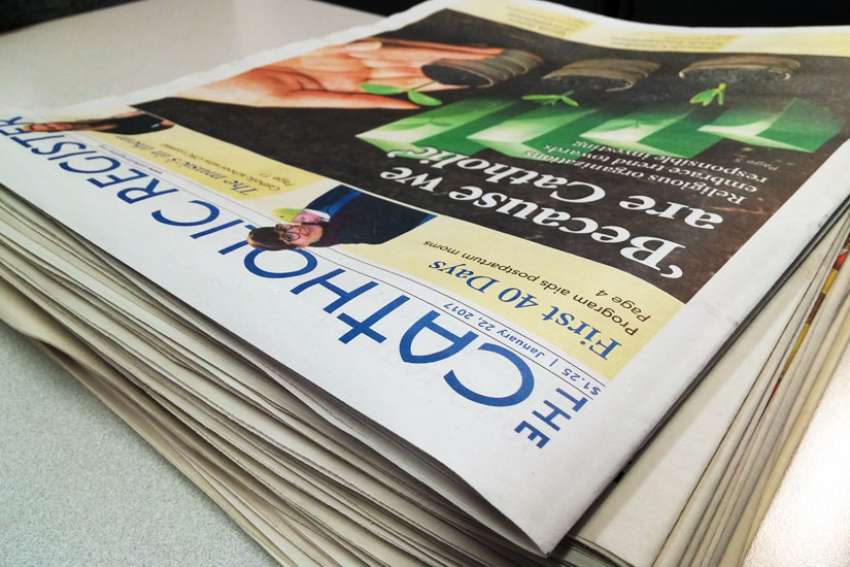In fact, Francis was a pioneer Catholic communicator, one who used print media to bring the people of the village in southeastern France where he was pastor, back to the Catholic Church in the years following the Reformation.
His method of evangelization was straightforward — he wrote tracts on various aspects of Catholic teaching, had them printed and shoved them under people’s doors. He used a new technology to deal with new problems.
The Church still sees Francis as a model communicator and every year on his feast the Vatican announces the theme for the pope’s message for World Communications Day, which is marked on Ascension Sunday.
On World Communications Day in 1971, the Vatican issued a lengthy statement which proclaimed, “It is hard to see how people can keep in touch with what is happening in the Church without the Catholic press. Neither can people keep a Catholic attitude towards what happens in the world without the help of commentaries on the news written in the light of Christian principles.”
Catholics, especially laity, need more than the parish bulletin and a Sunday homily to be formed in the faith. They need their own media.
Across the ideological divide from the Church was Vladimir Lenin, also a booster of print media. Lenin saw newspapers as vital to the Russian Revolution, that is, to social change. Lenin started a couple of newspapers in the run-up to the 1917 revolution and described their purpose as not only disseminating ideas and agitating the masses, but also as serving as “a collective organizer.” For Lenin, the newspaper was not only a part of intellectual formation, it is also created community.
Although the language and the goals of the Church are much different than those of Lenin, he had a point. To form Christian community, we need more than face-to-face communication.
Newspapers and magazines have long filled that purpose in the Church, letting Catholics know about the faith experiences of others, notifying them of upcoming events and reporting on recent occurrences.
Now, the world is into a new era in communications, one in which digital information is paramount. It is incumbent on the Church to adapt to this new world.
As long ago as 1990, before most had heard of the Internet or email, Pope John Paul II used his Communications Day message to declare that new media offered the Church yet another way to fulfill her mission of evangelization.
“Methods of facilitating communication and dialogue among her own members can strengthen the bonds of unity between them. Immediate access to information makes it possible for her to deepen her dialogue with the contemporary world.”
Nevertheless, one is impelled to ask how effective have the new media been in carrying out these tasks. The only plausible answer is that they have fallen far short of realizing Pope John Paul’s dream for them, and it is questionable if they ever will.
E-newsletters, websites, social media, blogs and email have become an essential part of any Church communications strategy. Newspapers, meanwhile, suffer from declining readership and are almost totally out of the consciousness of young people.
Still, I bet that if Francis de Sales were carrying out his mission of evangelism today, he would opt for print media over online methods. Print publications end up on tables in fast food restaurants and seats on subway trains where God’s serendipity can do its work. They can be forums for good reporting and open discussion involving a broad spectrum of Church or society.
As well, newspapers such as The Catholic Register are still knitting communities together. The heyday of newspapers is over, but nothing has risen to take their place. A Church serious about evangelization would not turn its back on them.
(Glen Argan, former editor of Western Catholic Reporter, writes from Edmonton. See www.glenargan.com.)


